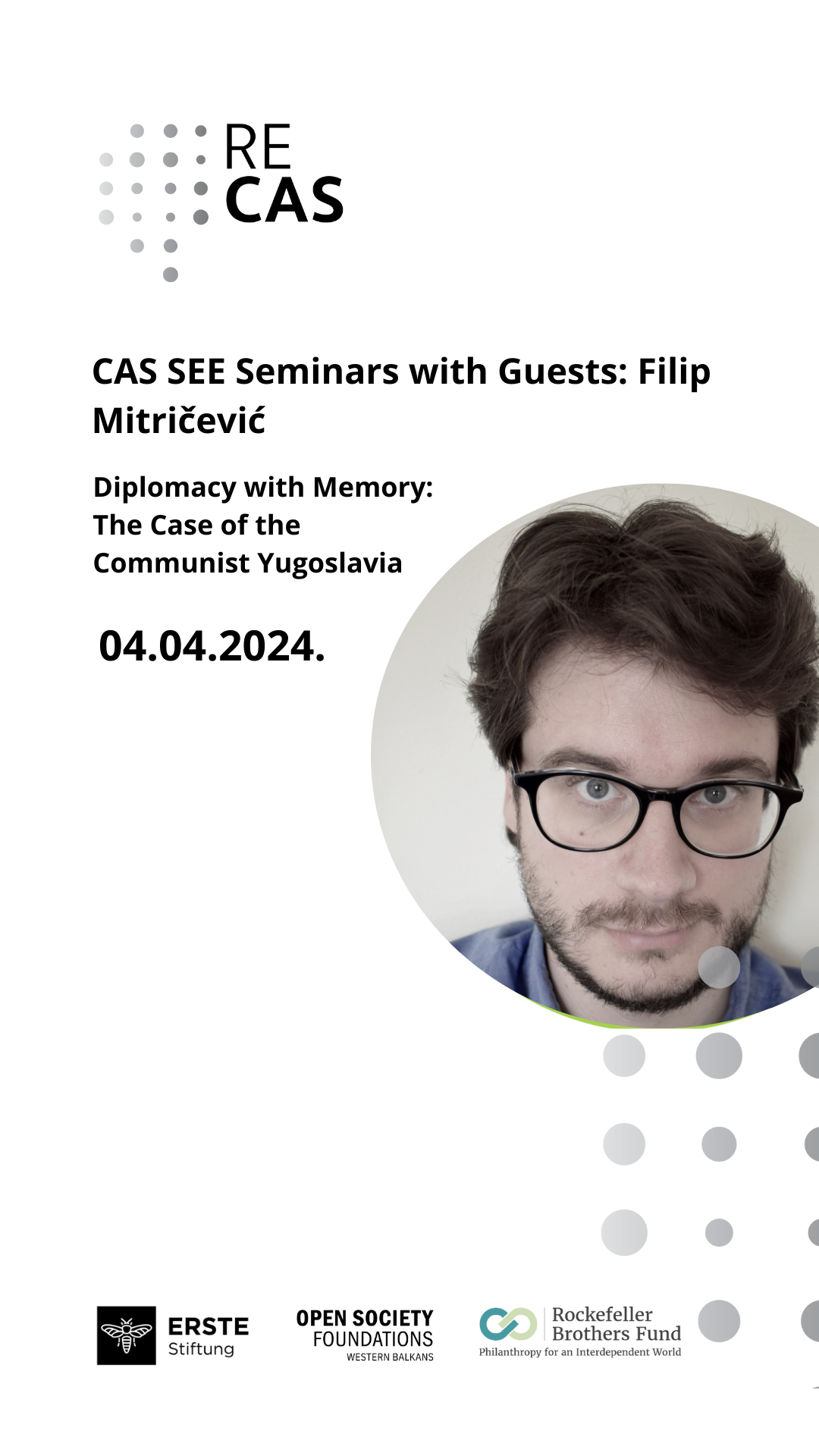
CAS SEE Seminars with Guests: Filip Mitričević “Diplomacy with Memory: The Case of the Communist Yugoslavia” in conversation with the RECAS Fellow Milica Božić Marojević
European integrations: Chapter 31 SDGs: SDG 16 Author(s): Filip Mitričević , Milica Božić Marojević Thematic Area: Active Citizenship and Democratic Institutions, Holocaust Studies, Social Criticism Published: 2024 Language: English Tags: video | More DetailsFilip Mitričević`s proposed talk addressed the theoretical assumptions of historical memory in an international context, the revolution of global history that led to it, as well as how he employed the principle in his research of communist Yugoslavia’s early Cold War history. Stemming from personal research interests and an ongoing doctoral dissertation project, Mitričević presented the academic acknowledgement of historical legacies and culture of remembrance as a viable diplomatic tool, as well as the necessary historiographical shift that fostered these new perspectives – the expansion of courses of study beyond the national state. The study of historical or collective memory had its start and long life in the domain of national histories as one of the primary elements for the formation of collective identities. However, with the shifting perspectives transcending the limitations of borders, with an increased interest in transnational and international networks, a space has opened for memory/heritage to be observed in its fullest capacity, as both an inward and outward-facing category. His talk will use one of the prime examples of employing diplomacy with memory in modern history – communist Yugoslavia. A “smaller power” in the constellation of the global Cold War, Yugoslavia successfully positioned itself as an unlikely leader of a decolonizing Global South movement as the only European member. He argued that a significant part of that success was managing the country’s World War II legacy in an international context.
Back
